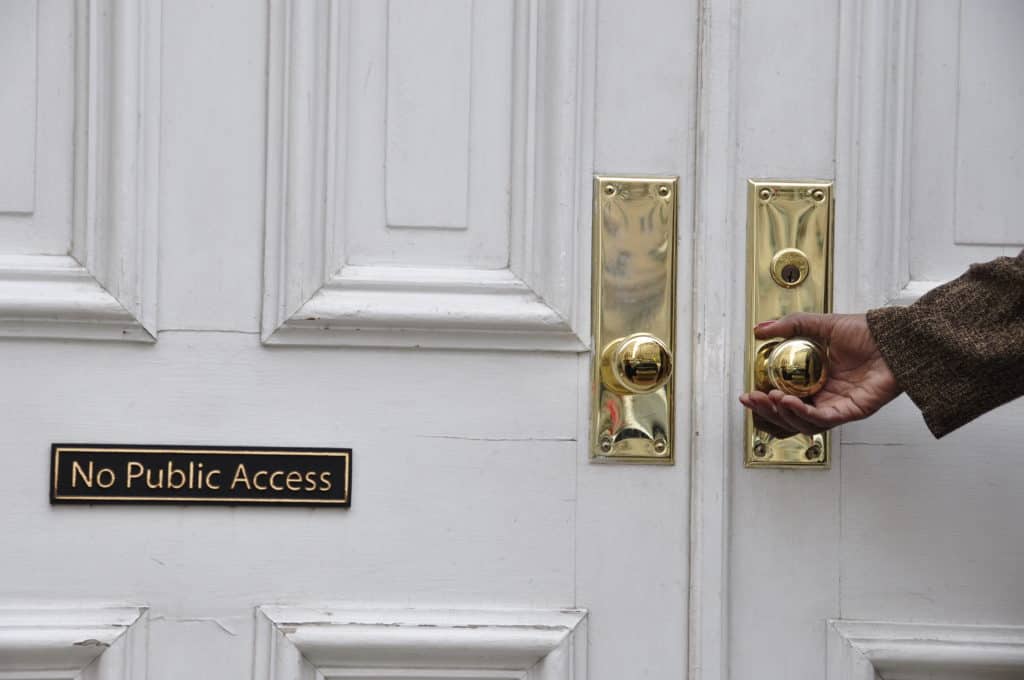This originally appeared in The Hill.
Last week, a report from the Center for Investigative Reporting found banks discriminated against minorities in 61 US cities. The report was based on mortgage data that banks are required to report to the government. Now, the Senate is poised to pass a law that would allow almost all of the nation’s banks to hide some of their mortgage lending data.
, nicknamed by advocacy groups the Bank Lobbyist Act, would be a giant step backwards for the public and national groups who use this data to ensure banks treat all borrowers equally. That’s not just a nice idea. It’s the law – and government regulators use Home Mortgage Disclosure Act data, known as HMDA (“humdah”), to make sure banks lend fairly to all qualified borrowers.
The data suggests that many banks do not – so banks are trying to get rid of the data.
Some of the HMDA data reporting is a relatively new requirement for an industry that has a long and dark history of discrimination. The reporting requirements were strengthened in the Dodd-Frank Wall Street Reform and Consumer Protection Act, which was passed after the 2008 financial crisis.
Today, the data shows dramatic discrepancies in loan denials for minorities compared to white applicants. In Philadelphia, qualified black applicants were almost three times as likely to be denied a home mortgage compared to white applicants. The HMDA data from 2015 and 2016 shows a trail of denials to minorities in Atlanta, Detroit, Philadelphia, St. Louis, San Antonio and other cities across the nation.
This suggests discrimination in lending is a nationwide problem that deserves more scrutiny, not less.
HMDA data is also used as evidence of discrimination in legal actions to force banks to change their practices.
In 2015, the Department of Justice settled a case against Eagle Bank and Trust, which was referred by the Metropolitan St. Louis Equal Housing and Opportunity Council, or EHOC, for rampant redlining across Saint Louis. The enforcement action, which led to a $975,000 settlement with the bank, used HMDA data analysis from the National Community Reinvestment Coalition to show an absence of loans and bank branches in communities of color.
“All of our cases, and we have been involved in six since 2009, included HMDA data as evidence of redlining and failing to lend to African American communities,” said Elisabeth Risch, Assistant Director of EHOC. “Without the HMDA data, we would have no way to identify potential discriminatory practices and address significant disparities.”
HMDA data offers evidence of discrimination. Other research shows how discrimination in lending occurs. Last year, “mystery shopper” tests conducted by the National Community Reinvestment Coalition found that bankers were three times more likely to invite follow-up appointments with white borrowers seeking small business loans than better-qualified black borrowers.
It’s painful to see signs of discrimination linger, and on such a scale, a half-century after Civil Rights-era laws aimed to eradicate discrimination in all spheres of the economy. It’s also painful to see bipartisan support for a move to hide that troubling story from the public. The bill has 25 co-sponsors, including 11 Democrats.
Sen. Heidi Heitkamp (D-N.D.) justified her sponsorship of S. 2155 by arguing that banks that were once “too big to fail” became “too small to succeed” because of the regulatory burdens under Dodd-Frank.
The burden of data collection and reporting is trivial. Banks already collect the very same data for their own confidential files. This bill simply allows all but the biggest banks to keep secret certain data about their lending records. It enables them to hide the truth.
Banks also argue the HMDA data doesn’t tell the whole story. They say additional information that banks are not required to disclose, like debt-to-income ratios and creditworthiness of borrowers, accounts for lending discrepancies in loan denials for minorities. But debt-to-income ratios and other critical loan terms and conditions are precisely the data mandated by Dodd-Frank that this bill would now shroud in a veil of secrecy.
The public needs sunshine, not secrecy. If this bill passes, journalists, government regulators and independent watchdogs won’t have a full picture of the housing market. They won’t be able to ask simple questions like, is our mortgage market fair? Will my bank evaluate my loan application the same way it evaluates every loan application – or will it deny me because I’m black, or Native American or a woman?
There’s ample evidence that discrimination in bank lending is widespread – and the Senate appears poised to help banks get rid of the evidence. That will protect the interests of banks, not the interest of average working-class Americans.
Congress should be asking how to expand reporting requirements for all lenders, not end them. We need bipartisan support to end discrimination in lending, not to hide the data that exposes it.
Click here to see if your Senator is sponsoring The Bank Lobbyist Act.
John Taylor is president and CEO of the National Community Reinvestment Coalition. Marc H. Morial is the president and CEO of the National Urban League. He was Mayor of New Orleans from 1994 to 2002, and served as president of the U.S. Conference of Mayors.
Photo by Jesse Meisenhelter



